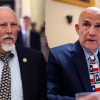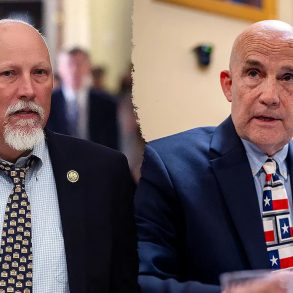President Joe Biden’s sweeping act of clemency, which commuted the sentences of nearly 1,500 individuals and pardoned 39 others, has sparked significant controversy and criticism.
The 1,500 individuals whose sentences were commuted had been placed on home confinement during the COVID-19 pandemic under the CARES Act. These individuals were released from federal prisons as part of efforts to reduce overcrowding and curb the spread of the virus. The White House emphasized that these recipients had demonstrated rehabilitation and reintegration into their communities. The 39 pardons focused on individuals convicted of nonviolent crimes, such as drug-related offenses, many of whom have since become positive influences in their communities.
Among those pardoned were:
- James Yarbrough, a 79-year-old Air Force veteran and Purple Heart recipient, who was convicted of stealing government property.
- Rosetta Davis, convicted of wire fraud, who has since become a peer supporter for individuals battling substance abuse in Washington state.
- Sherranda Janell Harris, convicted of drug distribution at 24, who overcame her past to build a successful career in finance and real estate while mentoring young women.
While the stories of redemption resonate with some, critics have pointed out that many of the clemency actions do not release anyone currently incarcerated, limiting the real-world impact of these decisions.
High-Profile and Controversial Cases
A number of the clemency recipients have drawn scrutiny due to the nature of their crimes. These include:
- Jimmy Dimora, a former Ohio county commissioner convicted of a pay-to-play corruption scheme involving $450,000 in bribes, which included gambling trips and luxury items. His sentence was commuted after serving over a decade.
- Paul Daugerdas, a former tax attorney who orchestrated a $7 billion tax fraud scheme, described as the largest of its kind in U.S. history. He was sentenced to 15 years in prison for his role.
- Elaine Lovett, a medical billing company owner convicted of a $26 million Medicare fraud scheme that involved billing for services never provided.
Such decisions have led to accusations that Biden’s clemency actions disproportionately benefit white-collar criminals while failing to address systemic injustices that keep thousands of others behind bars. Cynical editors from this publication are thinking these are future Democrat donors.
The timing of Biden’s clemency announcement, coming just weeks before leaving office, has fueled speculation about political motivations. Reports indicate that the White House is considering pre-emptive pardons for officials involved in investigations of former President Donald Trump, including members of the January 6th committee. Critics argue that such actions could set a dangerous precedent and deepen partisan divides.
Supporters of Biden’s clemency actions emphasize the importance of rehabilitation and second chances, particularly for those who have demonstrated remorse and community engagement. The White House described the commutations as an effort to “help reunite families, strengthen communities, and reintegrate individuals back into society.”
However, detractors argue that Biden’s approach fails to address deeper systemic issues. Some Republicans have criticized the clemency recipients, particularly those involved in financial crimes, as unworthy of such mercy. Meanwhile, activists on the left have called the actions insufficient, pointing to the thousands of individuals still languishing under harsh sentencing laws.
As Biden’s presidency winds down, additional clemency actions remain under discussion, including potential sentence reductions for those on federal death row. However, such moves are unlikely to quell criticism from either side of the political aisle. The president’s handling of clemency—marked by high-profile controversies and limited systemic reform—has left many questioning the fairness and efficacy of his decisions.
Ultimately, Biden’s record-setting clemency initiative may be remembered more for its timing and controversy than for its impact. While the White House emphasizes the stories of redemption among pardon recipients, critics see a politically expedient gesture that falls short of addressing the broader injustices in America’s criminal justice system.
And again, the cynical editors of NP are expecting this to be a precursor to the pardoning of political cronies, whose crimes may not even be known at this time. So much for integrity, Joe…








